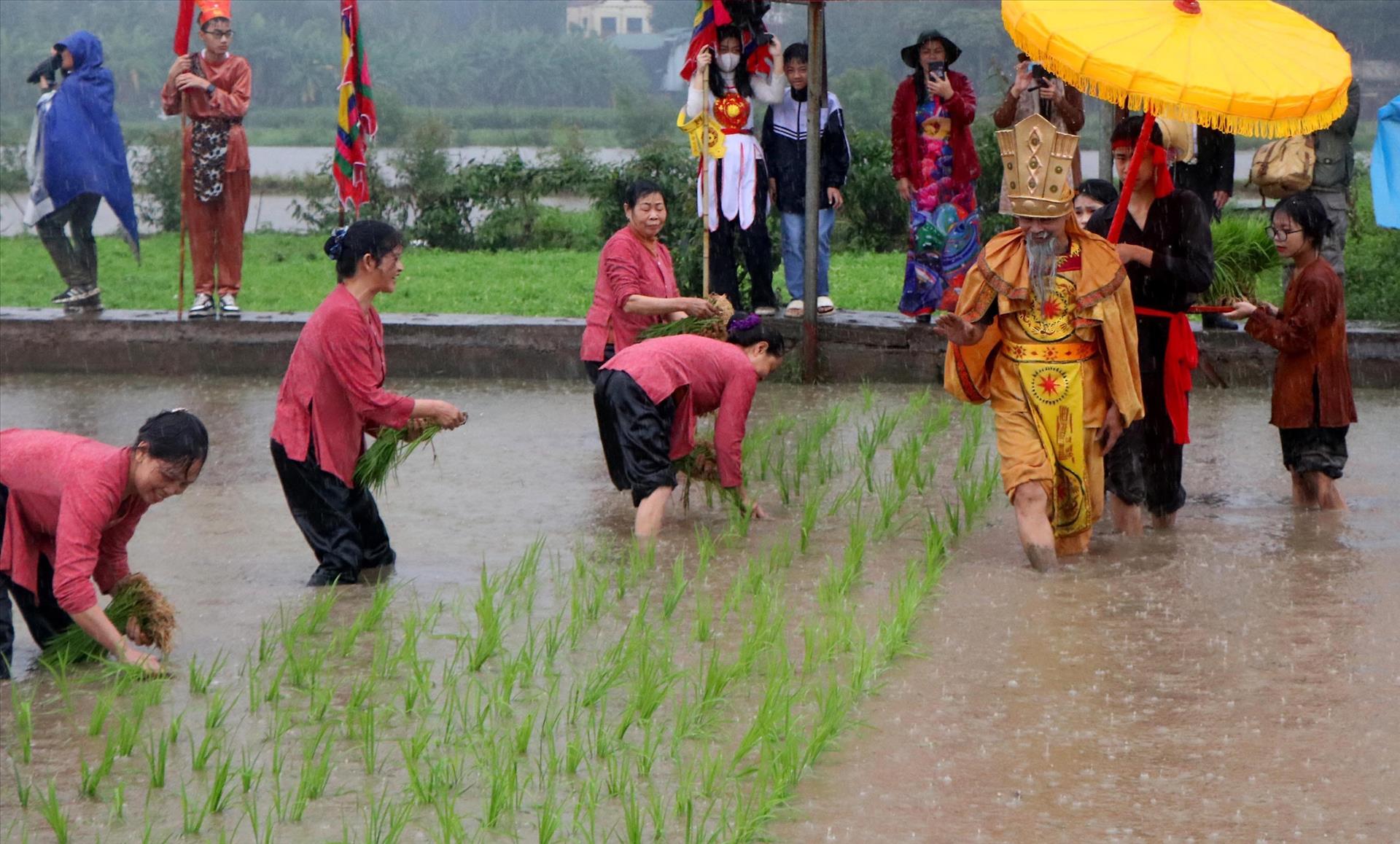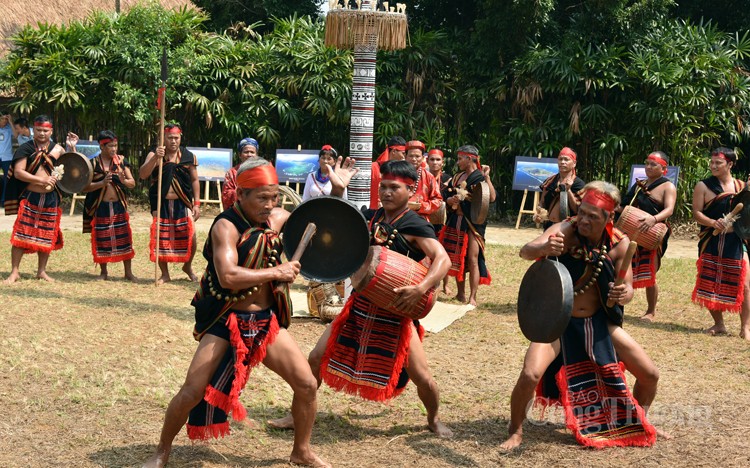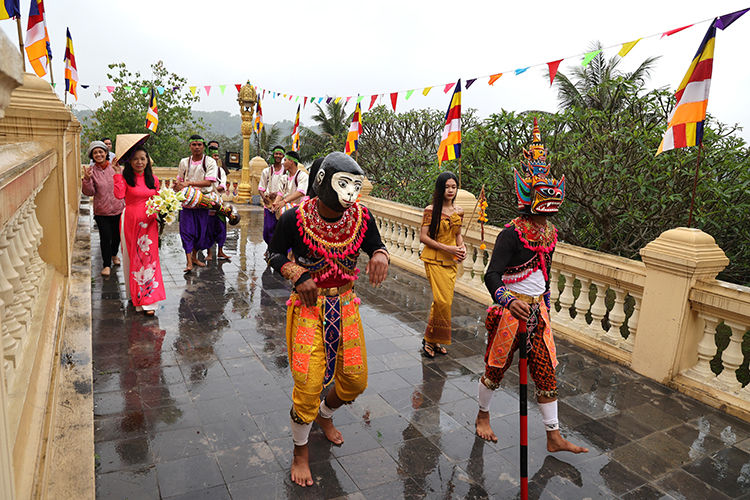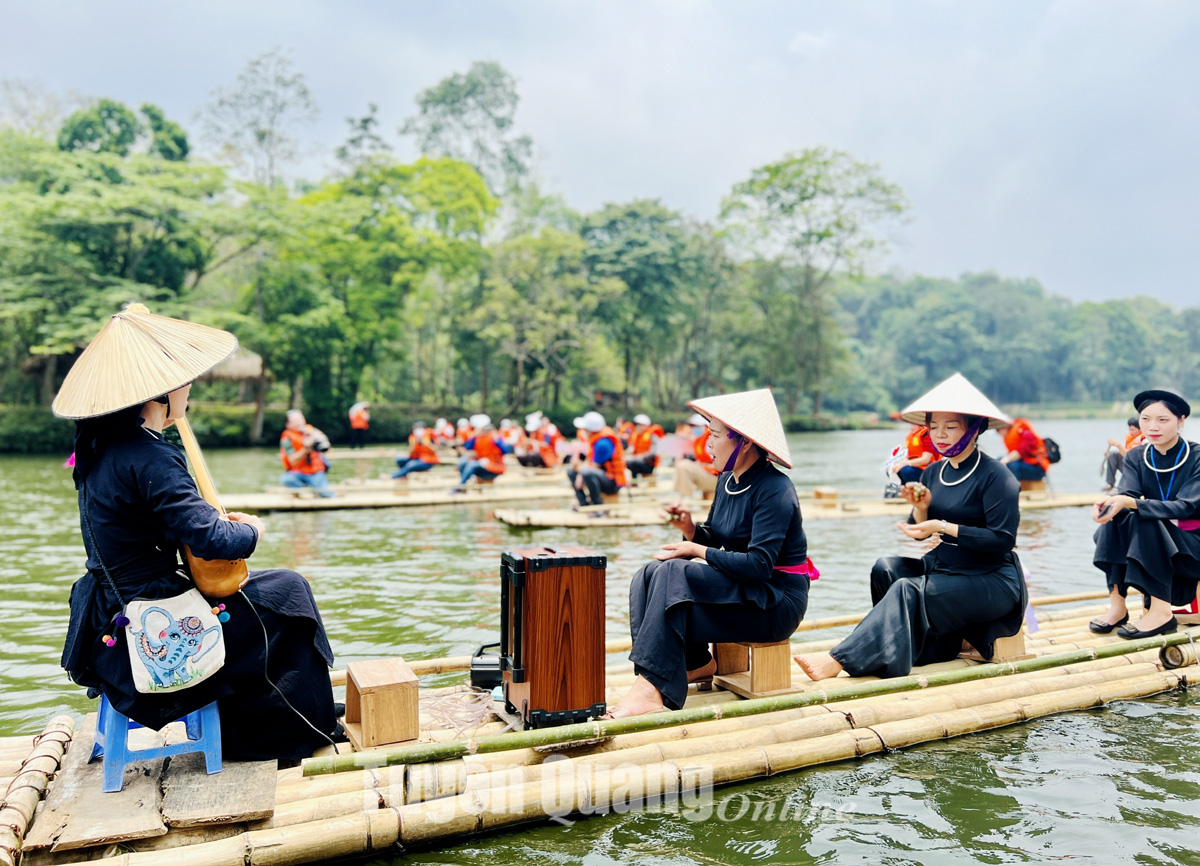
Photo: Vietnam Pictorial
Vietnam has a unique and long-standing culture associated with the history of formation and development of the nation. Vietnamese cultural identity is expressed in many areas of life and society, including traditional festivals.
Festivals in Vietnam exist in a variety of forms and rituals throughout 3 regions of the country. It is estimated that in Vietnam there are nearly 8,000 festivals held annually, most of which are traditional festivals.
Festival activities include activities with a ceremony and festival section. The "ceremony" part is a gesture of people to show respect to each other, as well as to the symbols of the faith. These gestures constitute customs in life or rituals in beliefs... And "association" is a large gathering of people to practice performances, perform customs, beliefs, cultural forms, religions, arts, entertainment, social spiritual activities...

Gong fighting, a unique art of the Cor ethnic group (Photo: congthuong.vn)
Thus, it can be seen that, although it is a community cultural activity, the festival always performs the "ceremony" part, to show respect, gratitude, life before and after for those who have had merits throughout the history of building and preserving, preserving and promoting the independence and culture of the nation. The ethic of "drinking water to remember the source" is forged and continued from year to year, from generation to generation, as a continuous flow of time through many activities, including traditional festivals of the nation. The "festival" part is one of the indispensable contents of the festival, stemming from the needs of life, making the festival more "soft", more "vital".
Traditional festivals are milestones marking the cycle of productive life and social life of each human community.
The festival is also an opportunity to bring the community together. Every festival belongs to and belongs to a certain community of people, which can be the village community (village society), religious community, ethnic community ... Community cohesion to show the spirit of solidarity, sharing the same desire for peace, warmth ...
Each traditional festival in each place has a different cultural nuance, expressing cultural concepts, ways of thinking, customs and practices characteristic of people and lands.

The ritual of carrying the god Kapila around the main hall 3 times to celebrate the new year is under the direction of Mr. Acha (Photo: Bao tin tuc)

Singing Then on Na Nua lake, Tan Trao commune (Son Duong) (Photo: Bao Tuyen Quang)
In traditional festivals, many unique cultural features have been preserved, preserved, promoted, creating cultural values of the nation along the axis of time. Therefore, traditional festivals, even if they appear, are born for hundreds or thousands of years, even for some reason interrupted for a certain period of time, they are still preserved and handed down to the next generation. In the contemporary generation, foreign visitors can easily be "seen", "heard", felt ... cultural features from thousands of generations of ancestors through traditional festivals. Try to do the opposite, if there are no traditional festivals to reproduce, restore, revive ancient rituals and cultural beauties... No matter how rich and diverse the traditional culture of our ancestors is, perhaps the next generation can only use imagination or search in literature, history ... on the journey to find traditional cultural beauty. The value of creativity and cultural enjoyment is clearly seen in traditional festivals.
However, with the characteristics of "continuing" culture, although it is a traditional festival, activities and rituals ... of the old days, when placed in the current context is no longer relevant, there has been adjustment and change. Thus, although the traditional festival has long-standing values, it is always for people, for the community and catching up with the trend of civilization and progress of the times.
The traditional festival has existed for generations with Vietnamese cultural identity as its own values, deeply rooted in human life, mind and spirituality. Those values affirm an indispensable part of culture in today's life. It is the pride and pride of national culture that has been molded and tested over time.
Source: toquoc.vn